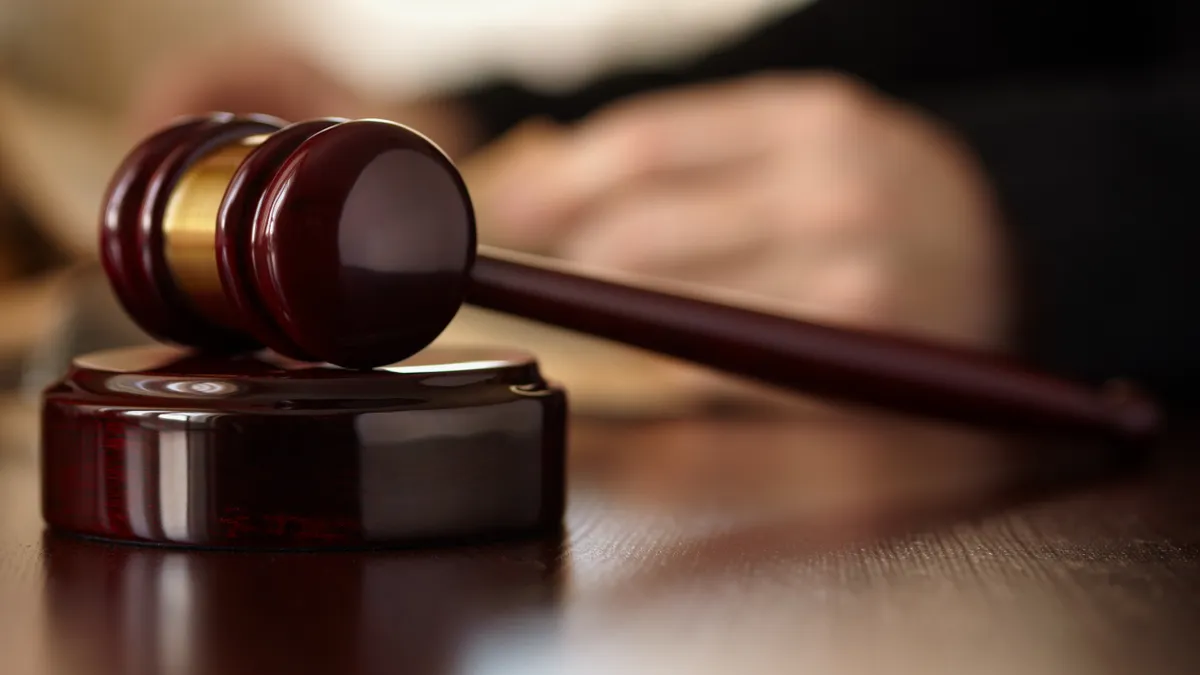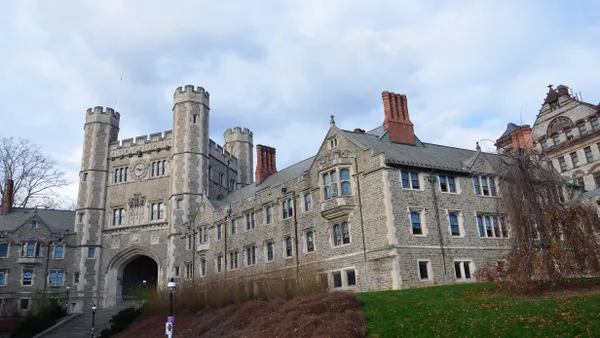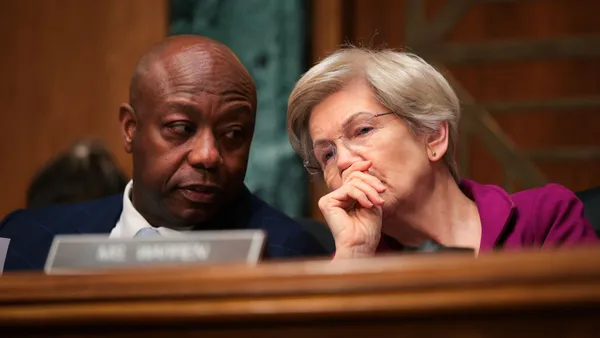Dive Brief:
- A Texas jury last week found that COVID-19 caused direct physical loss or damage to the Baylor College of Medicine's property and awarded the institution $48.5 million from Lloyd's of London syndicates that provided it with commercial property insurance.
- Ten members of a 12-person jury in Harris County District Court ruled against the insurer, the minimum number needed to decide the case in Baylor's favor.
- They awarded the institution almost $42.9 million for lost net profits because COVID-19 interrupted business, $3.4 million for extra expenses to recover lost or damaged property, and $2.3 million in research project expenses caused by the virus.
Dive Insight:
When COVID-19 prompted colleges across the country to shut down their campuses and pivot to remote operations, questions lingered about whether they would receive any reimbursements under insurance policies.
Most colleges carry different types of policies, including property and business interruption insurance that requires them to demonstrate actual physical damage to receive payments. Some policies limit damages that can be claimed in cases like mold or microorganisms that threaten human health.
It is rare for state courts to rule in favor of organizations suing their insurers in COVID-19 business interruption cases, according to a University of Pennsylvania Carey Law School database. Federal courts have overwhelmingly dismissed their cases as well.
Robin O'Neil, a lawyer representing Baylor, believes it is the only case of its type to make it to a jury trial. Many cases are moved to federal courts and dismissed early in proceedings, she said.
"We were fortunate to remain in state court, and then I think we had some unique facts that made Baylor particularly well-suited to bring the claim and recover," said O'Neil, partner at the Houston law firm Fogler, Brar, O'Neil & Gray.
As a healthcare provider and research institution, Baylor didn't have the ability to completely shut down, O'Neil said. It had to stay open to treat patients and do important research, including research related to vaccines and COVID-19 treatments. But Baylor had to take expensive precautionary steps to reduce the frequency of in-person activities.
For example, if COVID-19 patients were treated at one of Baylor's clinics,the examination rooms they used were kept vacant for an hour so virus particles could settle. Then staff members wearing protective equipment cleaned the rooms.
"We, unlike other plaintiffs, were able to show that the virus was present at Baylor's facility throughout the coverage period and was making it extremely difficult to operate at pre-pandemic levels," O'Neil said. "It's a question of fact in that the virus does cause property damage, and it certainly did in Baylor's case."
The insurance policy in question did not have any virus exclusions, she said.
When Baylor College of Medicine first sued in September 2020, it named several different insurance companies and underwriters providing portions of $200 million in insurance coverage for the institution.
The insurers responded with several defenses, including that the business interruption losses Baylor suffered were not caused by physical loss or damage covered by the policies. They further argued the claims weren’t covered because their policies prevented claims stemming from pollution, contamination and microorganisms that threaten human health.
Judge Donna Roth sided with two of the companies, XL Insurance America and ACE American Insurance Co., and removed them as defendants. Pollution and contamination exclusion in their policies meant they didn't need to cover damages stemming from COVID-19, Roth ruled in December.
That left the case against underwriters at Lloyd's, including a part of the syndicate that is based in Harris County. The jury ruled against the insurer Aug. 31.
Lloyd's did not respond to a request for comment Wednesday. O'Neil said she expects the insurers to appeal.















